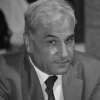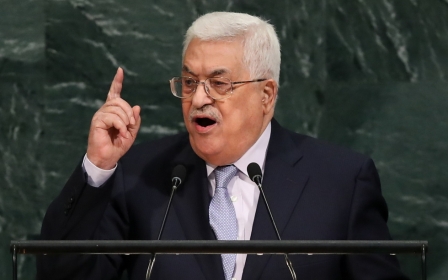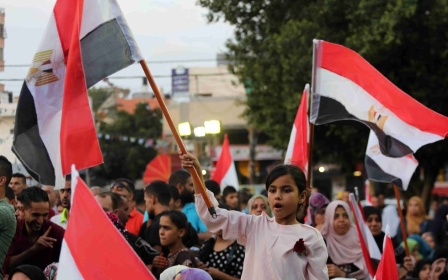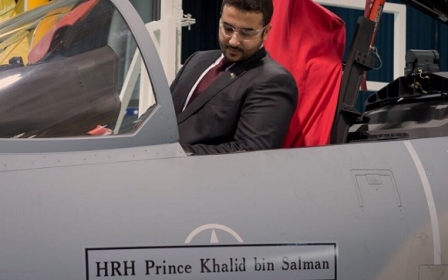One-state, two-state: Decoding Mahmoud Abbas' UN doublespeak
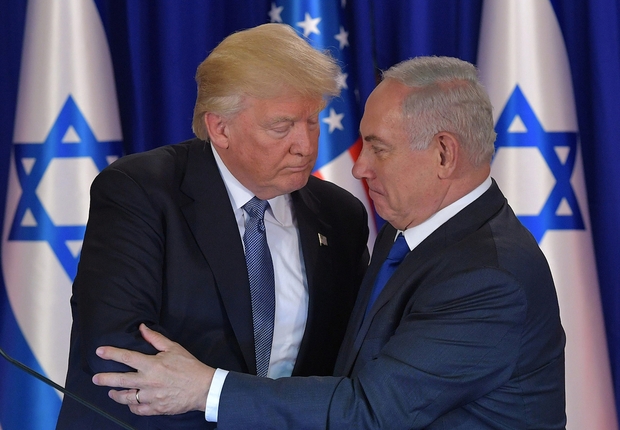
Palestinian President Mahmoud Abbas threw a curve ball at the UN General Assembly in his speech last week when he put the one-state solution squarely on the table.
After years of pursuing the two-state solution, what is the secret weapon Abbas thinks he has at his finger tips to say such a thing and think he will be able to get rights for his people?
Much of the leverage that Palestinians have had has been voluntarily wasted (such as the PA-Israeli security coordination or how the PA took weapons off armed Palestinian factions) as tokens of goodwill for Americans and Israelis in attempts to get a Palestinian state.For nearly a quarter century since the Oslo Accords, these tokens have been met only with more settlements, "Judaisation" and occupation.
It is true, as many say, that the demographic bomb is the Palestinian nuclear weapon, but with the growing racist policies in Israel, a Palestinian population majority will not be significant enough to effect the change that’s needed.
The most important questions that Abbas raised in his speech relate to the future: Did his speech constitute a completely new strategy? Was he announcing that the Palestinians will now break away from negotiations dominated by the US? Or from the Oslo Accords, including the existence of the Palestinian Authority itself? Was he hinting that he is completely abandoning the illusion of a two-state solution for a single democratic state?
But perhaps the most important question is whether, by throwing out a one-state scarecrow in his speech, will he have generated enough pressure to restore the two-state project?
Doublespeak - or clever ploy?
Well-informed observers believe that Abbas was forced to adopt a populist approach to rehabilitate himself after recent opinion polls revealed a dramatic fall in his popularity. But even bearing that in mind, his speech and statements had a doublespeak quality that clouded the motivations behind them.
Following a sideline meeting with Trump at the UN General Assembly on 20 September, Abbas said he was “confident that Trump wants and seeks peace in the Middle East and that he will achieve the deal of the era within a few months or days”. Just hours later, in his speech, he spoke with indignation directed at the international community calling the continuation of the occupation “a disgrace”.
He kept the door ajar for all possibilities and prepared the ground for his successor break with the past instead
In his speech, he presented the equal rights of Palestinians in one state as the only possibility because of Netanyahu’s destruction of the two-state solution. Yet in his statements before the speech, he expressed his hope for negotiations with Netanyahu on the two-state solution and under US auspices, knowing full well that Netanyahu and the US administration may disengage from that very solution.
So it’s clear that Abbas still believes the potential for a two-state solution lives on, that Netanyahu and Trump have not yet abandoned it and that he will give the Israeli prime minister and US mediation another chance to return to this solution – or at least stop its elimination.
If you consider the upcoming presidential and legislative elections, his strategy appears to be linked to ending the divisions between Hamas and Fatah before the entire Palestinian scene changes.
Kissing two states goodbye?
However, he wasn't kissing the two-state solution goodbye, but actually giving it another chance - a last chance. When he laid out what would follow if the two-state solution fails – an authority with no powers and Palestinian demands for equal rights in one country – he was putting forward a worst-case scenario for the Israelis and Americans to consider.
Israel will welcome the Palestinian threat with open arms and will try to turn this into an opportunity: now that Abbas has opened the door, the Israeli will see this as a chance to push their own vision of a one-state
Abbas likely made this move without building up huge expectations for the one-state solution because both the American and Egyptian presidents told him in recent meetings that a real chance for a two-state solution still exists and, if he could only hold on to that possibility, it could be realised. Abbas allowed for this in his speech, but made sure to paint a picture of what would happen if he was played.
He also implicitly invited Palestinians to immediately start the push for one democratic state: while, as a president, he is forced to wait for this so-called opportunity from the Americans and the Egyptians, his people are under no such obligation and shouldn’t because the prospects for its success are almost non-existent. This message was clear. He was also clear that Palestinians should be prepared to dissolve the Palestinian Authority and deal directly with the Israelis who would take over the West Bank.
Preparing the people
How Palestinians choose to deal with what the president said will affect the course of the events. For years, Abbas has been hinting that the end of the potential for the two-state solution might come, but now he’s blowing the start whistle on the end and Palestinians will need to have long discussions to figure out where the strategy goes from here.
For years, Abbas has been hinting that the end of the potential for the two-state solution might come. Now he’s blowing the start whistle on the end
Israel has initiated the process of preparing for such a situation, strengthening the civil administration in the West Bank, preparing for annexation, establishing self-governance of the population, and giving more autonomy to Palestinians in places like Nablus, Ramallah and Hebron.
After the speech, it will welcome the Palestinian threat with open arms and will try to turn this into an opportunity: now that Abbas has opened the door, the Israeli will see this as a chance to push their own vision of a one-state.
The American's will make overtures, through trying to bring Egypt, Jordan, Saudi Arabia and Israel together to help push forward Israeli-Palestinian negotiations, but for the US, this is really about building up an alliance against Iran, not about peace in the Holy Land.
Therefore, Abbas’ speech did make a difference, bridging the moment between the Palestinian strategy to date and that that will come in the future.
The only constant thing in the moving Middle East sands is change. And even though the speech foreshadowed strategic changes in the future, the region may just turn things upside down and rearrange the political agenda once again.
- Awni Almashni in a member of the consulting council for the Fatah movement and a columnist for Ma’an.
The views expressed in this article belong to the author and do not necessarily reflect the editorial policy of Middle East Eye.
Photo: US President Donald Trump and Israel's Prime Minister Benjamin Netanyahu in May 2017 (AFP)
This article is available in French on Middle East Eye French edition.
New MEE newsletter: Jerusalem Dispatch
Sign up to get the latest insights and analysis on Israel-Palestine, alongside Turkey Unpacked and other MEE newsletters
Middle East Eye delivers independent and unrivalled coverage and analysis of the Middle East, North Africa and beyond. To learn more about republishing this content and the associated fees, please fill out this form. More about MEE can be found here.


